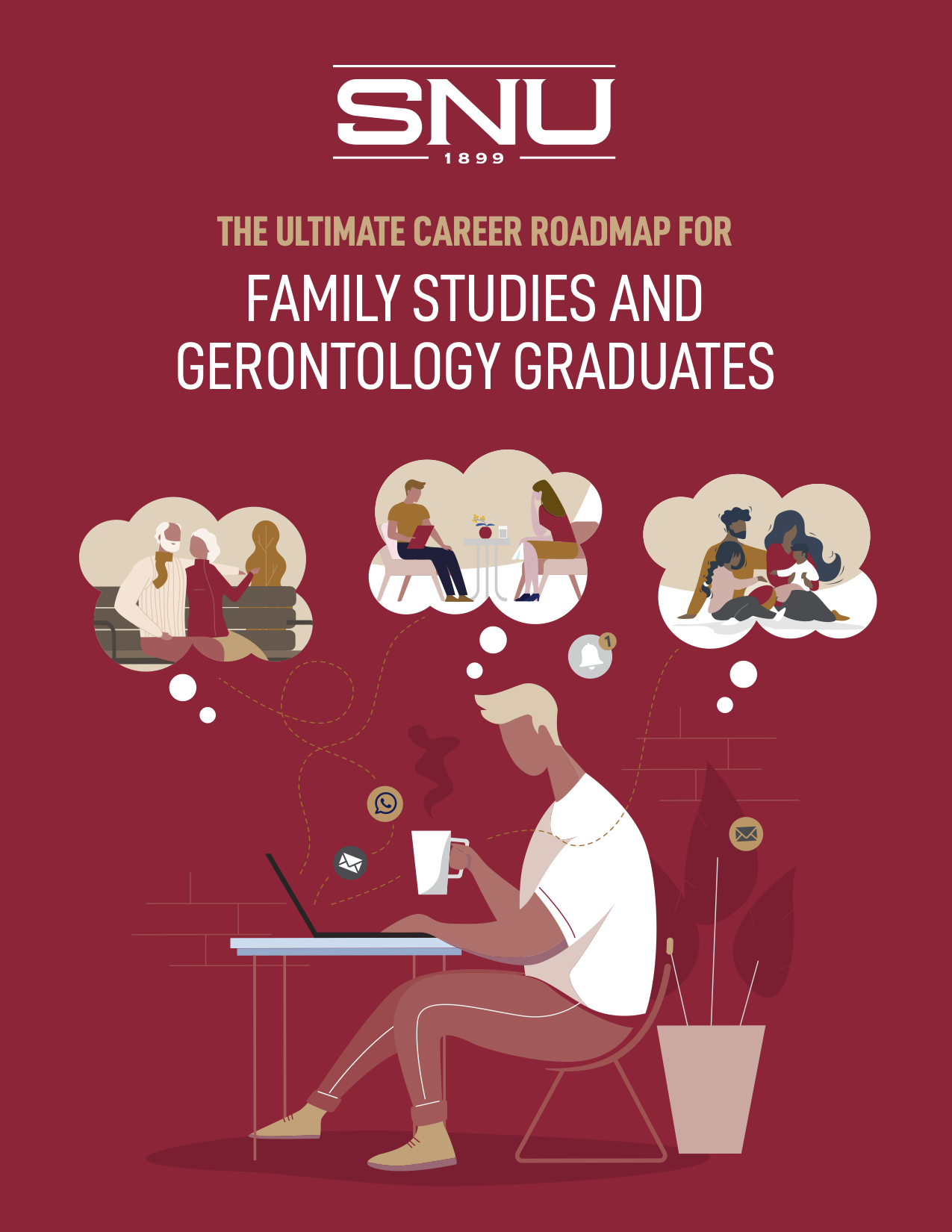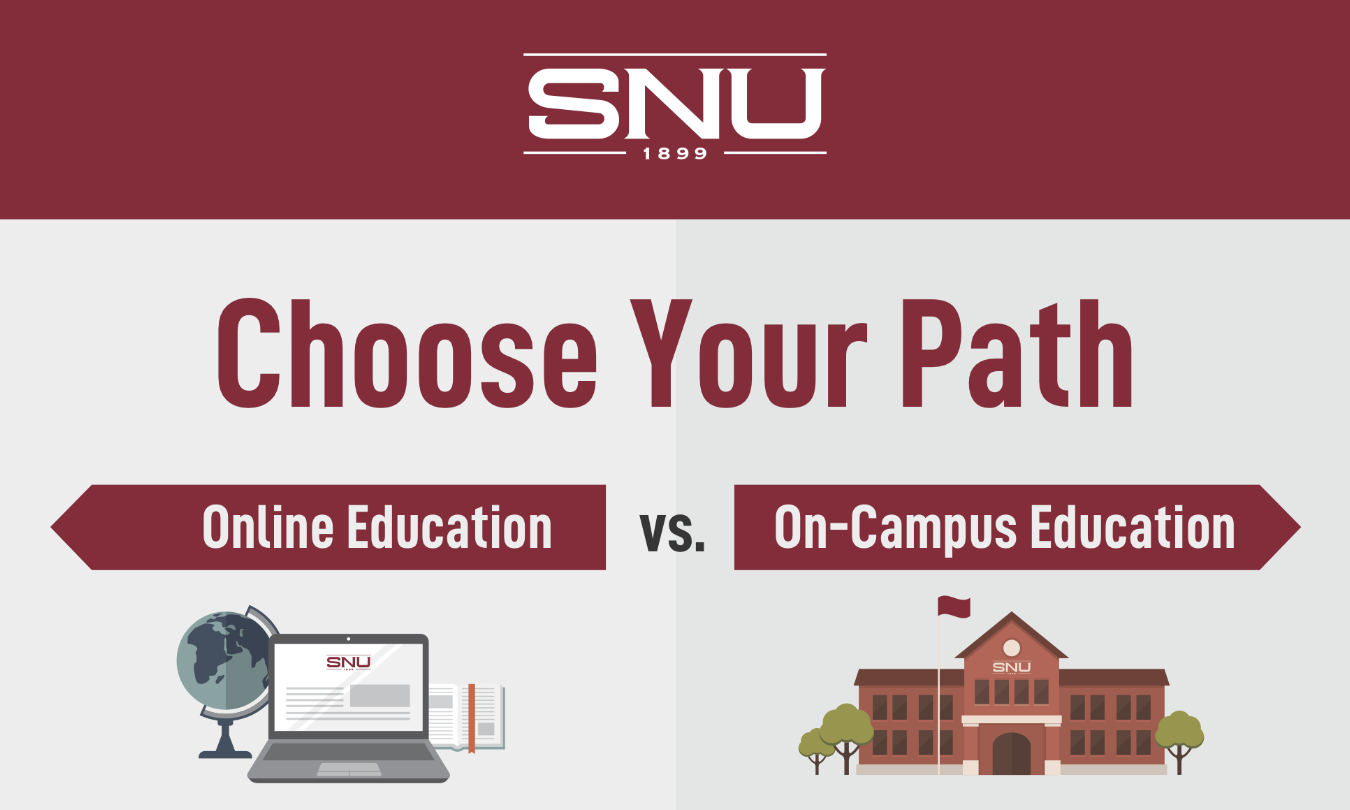-
Programs
Not Sure Where to Start?
- Associate Programs & Certificates
- General Studies
- Associate of Arts in Business
- Physical Therapist Assistant
- Professional Services & Certificates
- Special Education Bootcamp
- View All
- Undergraduate Programs
- Business Administration
- Criminal Justice
- Cybersecurity
- Education
- Family Studies and Gerontology
- Healthcare Administration
- Organizational Leadership
- Accelerated General Education
- View All
- Graduate & Doctorate Programs
- Doctorate of Education in Administration & Leadership
- M.A. Administration of Special Ed.
- M.A. Applied Psychology
- M.A. Educational Leadership
- M.A. Sports Management & Administration
- M.A. Teaching
- MBA, 12- 18 months
- MBA - Healthcare Administration
- Master of Organizational Leadership
- M.S. Counseling Psychology
- M.S. Exercise Science - Health & Human Performance
- M.S. Exercise Science - Wellness
- M.S. Instructional Design Technology
- M.S. Management
- M.S. Physician Assistant
- Alternative Certification (Teaching or Special Ed.)
- View All
- Resources
- Tuition & Aid
- Military

Introduction
Longer, healthier lives coupled with the vast number of Baby Boomers settling into their senior years mean that the United States is rapidly aging. The U.S. Census Bureau estimates that by 2035, there will be more seniors than children in the country.
The transition to a senior age offers promise for wisdom, deep connection with loved ones, and a chance to build a lasting legacy. It can also be frightening. Changing abilities, physical decline, and financial uncertainty all loom large. Families may disagree about how to manage aging challenges. Seniors may feel unheard and lost in the mix. A career in family studies and gerontology equips you to support families in transition, help elders identify their goals for the future, and ensure every generation can age with dignity.
Careers in gerontology are growing. Pursuing a degree in family studies and gerontology (FSG) opens doors to a wide range of career paths to suit every interest and working style. Here’s what you need to know about transforming your interest in family studies and gerontology into a viable career that supports your dreams while empowering your community.
Download a PDF version of this guide by filling out this form, or keep scrolling to learn more.

Chapters
What Will You Learn with a Family Studies and Gerontology Degree?
Family Studies and Gerontology: A Thriving Field
Benefits of a Family Studies and Gerontology Degree
Great Family Studies and Gerontology Jobs
What to Expect from SNU’s Program
Next Steps: We’re Here to Help

What Will You Learn with a Family Studies and Gerontology Degree?
Families are complex, dynamic entities. They bring their own cultures and experiences to raising children, caring for elders, and deciding what feels “normal.” And because our families are the people with whom we spend the most time and by whom most children are raised, they can affect our lives long after we leave them.
Family studies and gerontology teaches you to delve deeply into how families really work so you can identify problems, offer solutions, and appreciate the similar, yet unique qualities of different types of people.
Some topics you’ll explore include:
Human Development
Consider how human beings grow and develop, the challenges they face at each stage of their lives, and how families interact with the individual to alter the course of development.
Families and Society
Our society depends on families to raise the next generation and to care for the sick. You’ll explore how different family dynamics affect society. You’ll also learn that social expectations may color our ideals of family, child rearing, and more.
Problem-Solving
No family is perfect. The right combination of interpersonal, communication, and critical thinking skills can root out dysfunction. You’ll master the art of helping families solve their own problems, then cultivate skills for helping people recover from challenging families.

Family Studies and Gerontology: A Thriving Field
Everyone has a family. That’s a fact that will never change. And many people need help navigating the ups and downs of family life. This offers significant job security and a chance to help people.
Families today need more help than ever to navigate a challenging world. Fifteen percent of the U.S. population is over the age of 65. Many of them will have to make major decisions about where and how to live, as well as how to manage the challenges and triumphs of a long life.
For the first time since the 1790s, the number of people living in each household will rise to 2.63 per household. This means more relationships to manage and understand. With that comes an increase in conflict. Divorce remains common. Just 34 percent of adolescents ages 12-17 live with both parents. Nineteen percent of children under the age of 18 have experienced two or more serious adverse events.
Family difficulties can make life more difficult. Children may struggle to master adult skills, need help to navigate higher education, experience conflict in their adult relationships, and even suffer health problems related to childhood adversity. Seniors may find themselves mired in family conflict, struggling to assert their desires about their own future, and terrified of being sent to live somewhere unfamiliar.
It doesn’t have to be this way. People with training in family studies and gerontology can help families better understand the needs of children and elders. In doing so, they can change the world, beginning with individual families.

Benefits of a Family Studies and Gerontology Degree
When you support families, you can change an entire community, making this the perfect field for people who envision a better world. Some compelling reasons to consider this path include:
Growing Demand
With a rising senior population, more families than ever will need help to explore their loved one’s options for a happy, healthy retirement. Young people, too, need help to transition to adulthood, weather the storms of family life, and nurture healthy relationships. As society continues to change at a rapid clip, graduates from a family studies and gerontology program can count on increased demand for the unique insights and problem-solving skills they offer.
Job Stability and Growth
Overall, human development and family studies careers should grow by 9.7 percent by 2026. Some roles, however, offer even faster growth. Family studies and gerontology graduates who pursue healthcare positions can expect 14 percent job growth, high earnings, and historically low unemployment. Families will always need support. A healthy society will always depend on thriving families. These jobs are not going away.
Great Pay
There’s no upper limit on what you can earn with a family studies and gerontology degree. Unlike some paths, you’re not locked into a single job after graduation. Instead, you can shift roles as your career expands and your needs change. People who thrive as consultants or who start their own businesses can make well over six figures. Researchers, too, often earn exceptional salaries.
Even at the lower end of the spectrum, you’ll still be making more than average. College graduates boast median weekly earnings of $502 more than those with just a high school degree. Over 20 years, that adds up to more than half a million dollars in additional earnings.

Great Family Studies and Gerontology Jobs
The nice thing about a family studies and gerontology degree is that you’ll learn a diverse range of information that can help you thrive in a variety of fields, but you won’t be locked into any single job. Your degree can also serve you well if you pursue additional education. For instance, if you go to law school, you might graduate and practice elder law. In this role, you’ll lean heavily on the knowledge of family dynamics and aging that you’ve gleaned from your bachelor’s degree.
Some of the great jobs graduates land after earning their degree include:
Mental and Behavioral Health
The world will always need social workers, counselors, therapists, and other mental health experts. Many mental health jobs require a graduate degree, although some demand only a bachelor’s. For example, a family care coordinator at a senior living community might use their undergraduate training to advise families about care decisions and help them manage conflict.
As people grow more aware of the important role mental health plays in overall wellness, these jobs grow. Mental health counselors can expect 22% job growth by 2028.
Justice System
Families encounter the justice system in many ways. Sometimes family members need to pursue guardianship of struggling seniors. Incarcerated elders may need support and advocacy. And all families navigating the legal system need support. Law enforcement and corrections officers with family studies and gerontology training can better serve their communities and reach people in need. Victim liaisons can specialize in elders who have experienced crime. Lawyers can serve seniors and their families by protecting their assets and advocating for their interests.
Some other roles you might fill in the justice system include:
- Working in corrections as a mental health or substance abuse counselor
- Serving as a court-appointed advocate for abused children or elders
- Working with local agencies to serve people involved in the justice system
Social Services
Families need a wide range of social services, and your degree equips you to address these needs. You might pursue graduate training to become a licensed clinical social worker who counsels families in private practice or advises agencies about how best to support people in your community. In 2019, social workers had median earnings of $50,470 per year and were projected to see 11 percent job growth by 2028.
You don’t have to go to graduate school and become a social worker though. You could join a local senior support center and advise seniors about managing retirement needs. Or you might work in child or adult protection services.
Social service work includes a vast array of roles, offering you flexibility to serve families in the way that feels right to you.

Ministry
A degree in family studies and gerontology is the perfect launchpad for a career in ministry. Whether you’re working as a pastor and serving your flock or serving in a lay capacity, families need people who can support their spiritual and social health. People who plan to go into ministry work must have a deep understanding of families, their needs, and challenges. Your bachelor’s is a perfect precursor to an M.Div. or similar degree. It can also stand on its own as training to serve your local religious organization.
Religious workers can expect a 6.7 percent job growth rate as more people seek spiritual aid.
Education
Education encompasses a vast range of occupations, from working with children to helping ailing seniors relearn basic life skills. With enough training, you might land a job as an educator at a community college or university teaching others about families and gerontology. Teachers need a deep understanding of family dynamics to serve students. Some people even start their own training businesses, educating people about specific issues that families face. For instance, you might open a company that helps seniors plan for the financial and psychological challenges of aging.
SNU graduate Nikki Buckelew put her SNU training to work by building a real estate business catering specifically to seniors. You can learn more about her career here.
Industry and Business
Every business needs people who understand human psychology—and understanding human psychology demands deep insight into families. People in human resources, employment recruiting, legal mediation, and myriad other fields use the knowledge they learn with a family studies and gerontology degree every day.
With a degree in this field, you have the option to become your own boss too. You might start your own business serving families. Some graduates offer consulting services or parent coaching. Others use their knowledge of families and their needs to better serve employees in a wide range of businesses.

Healthcare
Healthcare is always a winning career bet. Your bachelor’s degree can lay the foundation for a health career serving families, children, or elders. A critical nursing shortage means that nurses can expect especially strong career growth, low unemployment, and high wages. In 2019, registered nurses had median annual earnings of $73,300. Consider a role in geriatric nursing or as a home health or hospice nurse.
Some other healthcare roles that offer a chance to aid families while growing your bank account include:
- Health technician
- Nursing assistant
- Home health aide
- Gerontologist
- Geriatric physician
Although you might need graduate training for some of these jobs, your FSG bachelor’s offers a powerful first step toward securing the career of your dreams.
Adults and Aging
Adults might no longer live with their family of origin, but they still need help to navigate the challenges families present. Seniors may struggle with aging, communicating with their families about senior living decisions, and exploring their options for long-term health. Younger adults may need help accessing resources to improve their lives. Some interesting jobs to consider include:
- Geriatric care coordinator
- Housing counselor
- Transitional living supervisor
- Re-entry specialist for formerly incarcerated persons
- Adult protective services officer
Youth and children
Children are highly vulnerable because they cannot do much to change their lives or family situation. Nearly three million cases of child abuse are reported every year in the U.S. You can help stop the epidemic of child abuse as a child protective services worker, family support liaison, or parent coach. If you love working with children and young adults, there are plenty of opportunities available. Foster care coordinators, child treatment coordinators, daycare owners and administrators, and other experts ensure that all children can get the best possible start.
If you’re open to graduate training, a career as a family therapist or licensed clinical social worker specializing in children enables you to work directly with struggling children and their families. Mental health counselors had median yearly earnings of $46,240 and 22 percent job growth in 2019.

What to Expect from SNU’s Program
SNU offers an exceptional FSG program. Experts in the field carefully crafted an educational track that ensures you’re ready to serve families from day one.
Some of the courses you’ll take include:
- Human development: Learn about how humans grow and develop, especially in early life.
- Family communication: Master the art of excellent communication, while gaining insight into what often goes wrong in family discussions.
- Adulthood and aging: Development doesn’t end with adulthood. Learn about the developmental milestones and challenges people face from adulthood through old age.
- Introduction to counseling: Invest in sound counseling principles so you can help families manage whatever challenges they face.
- Biblical perspectives in Western culture: Drawing on our Christian roots, SNU educates students about historical, including Biblical, perspectives on the family.
- Coping with crises: Navigating crises can help families thrive even in the face of adversity.
- Death, grief, and loss: Anyone who lives long enough may lose people, suffer, and grieve. You can help them cope with the skills you'll learn in this course.
At SNU, we understand that busy adult learners have families and conflicts of their own. We aim to integrate our program into your life so that you can achieve balance and joy even when you’re facing the stress of a rigorous academic program. Some of the unique ways our program helps you succeed include:
Cohort Model
Friends can help you stay motivated to study, invest in your education, and graduate on time. Our cohort model means you’ll take classes with a group of peers. Support each other now, and you’ll become one another’s professional network after graduation.
One Class at a Time
Don’t neglect everything else in your life for school. SNU keeps your course load manageable with a unique one-class-at-a-time model that still prioritizes timely graduation. Dig deeply and invest in course material without having to run from class to class every day.
Versatile Course Structure
You can learn on your own time at home with our innovative online-only courses. Or if you prefer a physical campus experience, commit to just one night a week.
Commitment to student success: We understand that returning to school can be daunting. That’s why we’ve built a web of support for every student. Get help with financial aid paperwork and decisions at our financial aid office. Lean on our chaplain when you feel overwhelmed. If you’re a veteran, our VETS Center is one of just 13 Centers of Excellence for Veteran Student Success in the nation. We are here to welcome you with open arms.
.jpg?width=1920&height=1080&name=southern-nazarene-university_hero%20(1).jpg)
Next Steps: We’re Here to Help
No matter where you’ve been or where life’s twists and turns have taken you, we know you can offer something unique to our SNU community. The next chapter of your life begins with a simple phone call or email. Our courses start at multiple points throughout the year, which means that you can start school as soon as you’re ready. This time next year, you could be planning your graduation! Give us a call. We’d love to help you weigh your options, and we’d be honored to be part of your story.
Ready to take the next step? Apply now! Learn more about your funding options by contacting our Financial Aid Office.
Download a PDF version of this guide by filling out the form












.jpg?width=2119&height=1414&name=GettyImages-693210204%20(1).jpg)
%20(1).jpg?width=920&height=480&name=GettyImages-1090216744%20(1)%20(1).jpg)

.jpg?width=2121&height=1414&name=GettyImages-1006682756%20(1).jpg)